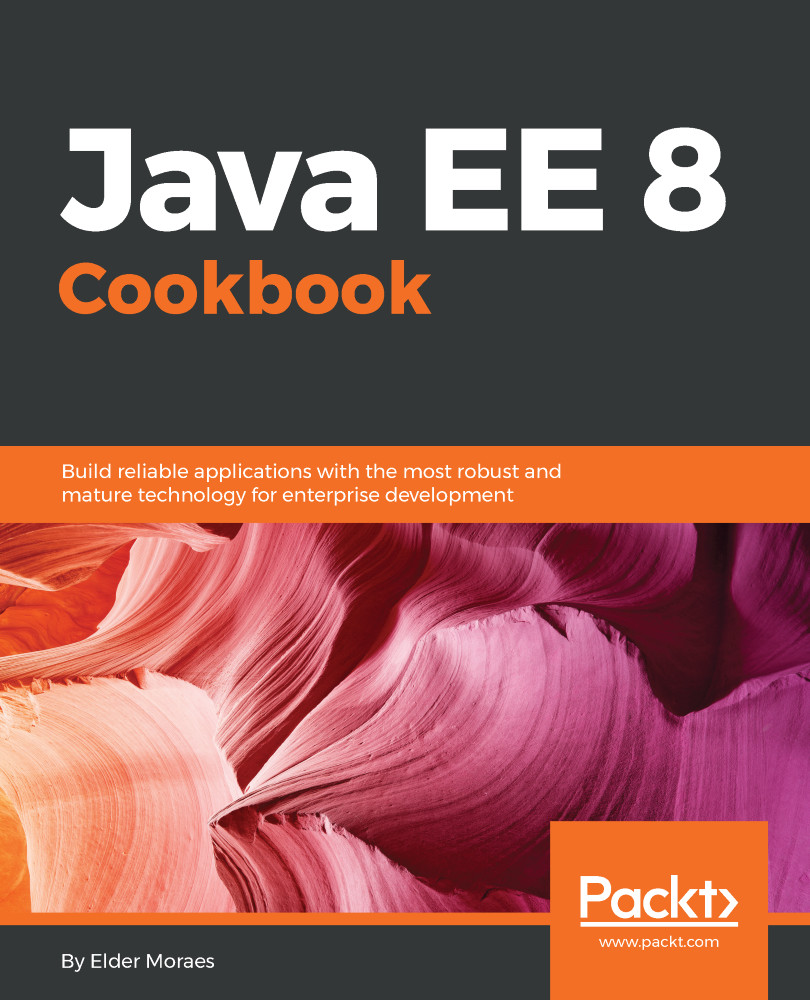Java EE 8 is a big release, desired and anticipated by the global community for about four years. More than ever before, the whole platform is now even more robust, mature, and stable.
This chapter will cover the main APIs that we can highlight for Java EE 8. Not that they are the only topics covered by this release—far from it—but they have a big role in the enterprise context and are worthy of a careful look inside.
In this chapter, we will cover the following recipes:
- Running your first Bean Validation 2.0 code
- Running your first CDI 2.0 code
- Running your first JAX-RS 2.1 code
- Running your first JSF 2.3 code
- Running your first JSON-P 1.1 code
- Running your first JSON-B 1.0
- Running your first Servlet 4.0 code
- Running your first Security API 1.0
- Running your first MVC 1.0 code



